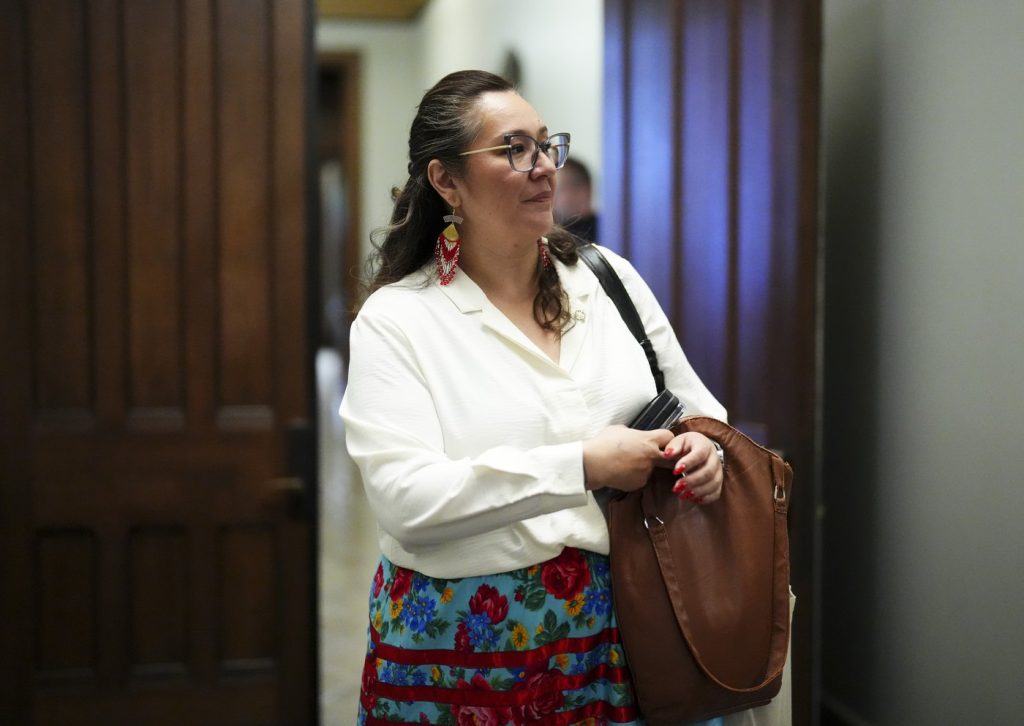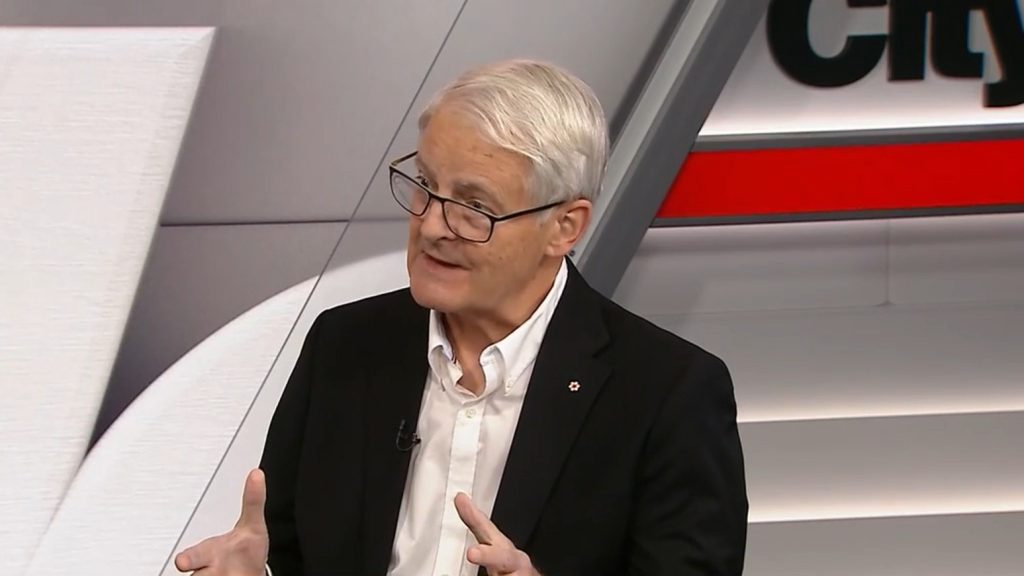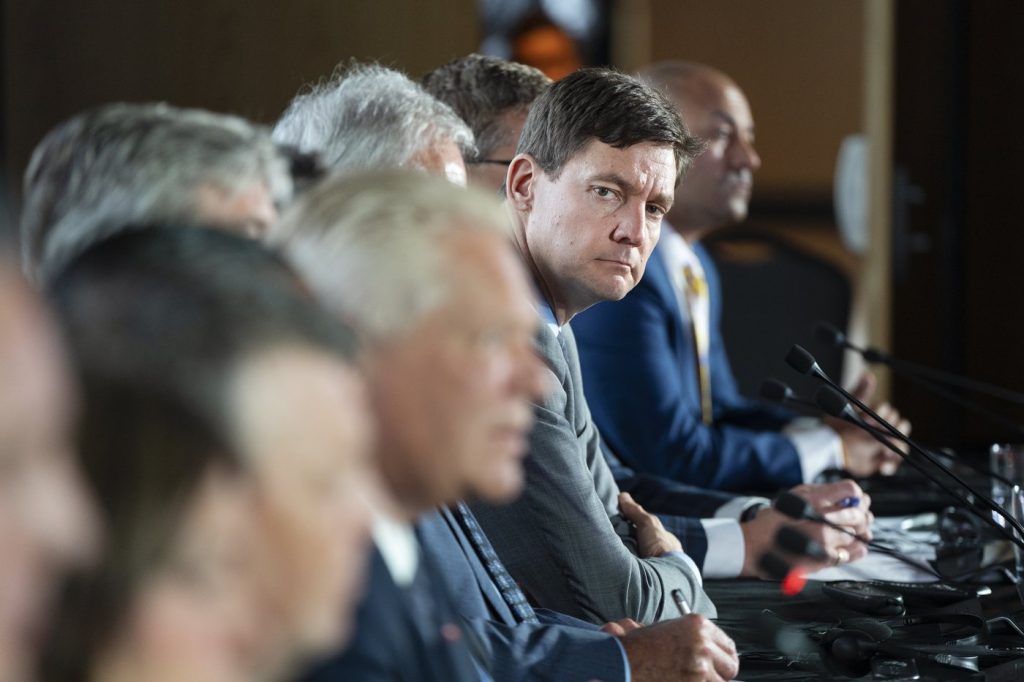OTTAWA — The federal minister of Indigenous services, Mandy Gull-Masty, along with other Indigenous members of the cabinet, expressed their support for the government's agenda to accelerate infrastructure development. This affirmation comes despite mounting opposition from First Nations leaders who are concerned about the implications of the government's approach to consultation and engagement.
During a press statement, Gull-Masty indicated that Prime Minister Mark Carney has assured that First Nations will be integral to the discussions surrounding projects that the federal government plans to fast-track. She emphasized that their input is paramount for the successful progression of these initiatives, stating her belief that early engagement and dialogue with national leadership and directly with affected First Nations are essential steps in this process.
The national chief of the Assembly of First Nations (AFN), however, voiced a stark disagreement with the government's characterization of the consultation process. In a letter addressed to Prime Minister Carney, Chief Cindy Woodhouse Nepinak highlighted concerns that the government is relying on the AFN for consultations instead of engaging directly with the leadership of rights-holding First Nations. She pointed out that the AFN has yet to receive a mandate from the chiefs to engage on the new legislation, with the next assembly scheduled for July.
Woodhouse Nepinak further stressed that the AFN's executive committee had only limited time to review the scant information that had been provided regarding the proposal. She sought clarification on whether the government had adequately notified all First Nations rights holders about this matter, as is required. Her letter underscored the risk that the proposed legislation could lead to "conflict and protracted litigation" due to inadequate engagement and consultation with rights-holders, suggesting that First Nations rights have been overlooked once again.
In response to these criticisms, Gull-Masty expressed her support for Woodhouse Nepinak's stance, pledging to advance that conversation in meaningful ways. She maintained that the focus should be on the quality of discussions rather than on the mere urgency of moving forward with the proposals.
Liberal MP Jaime Battiste, a member of his party's Indigenous caucus, added that all current projects under review supposedly have "buy-in" from Indigenous communities and are positioned for prioritization. This statement aims to provide assurance that Indigenous interests are being considered as part of this expedited process.
In stark contrast, Phil Fontaine, the former national chief of the AFN, publicly accused the federal, provincial, and territorial governments of undermining First Nations rights and interests as they move towards hastening project approvals without honoring the rights of Indigenous Peoples. He called for an emergency meeting to unify leadership from across the country in order to establish a list of demands directed at the federal and provincial governments.
The Union of B.C. Indian Chiefs also voiced serious concerns regarding the government's plans, highlighting the potential adverse effects on First Nations women, girls, and two-spirit individuals. They drew attention to the documented connections between extractive industries and increased incidences of gender-based violence, emphasizing that comprehensive rights- and gender-based analyses must be integral to any economic strategies involving Indigenous communities.
Amnesty International has long advocated against what it deems human rights violations faced by Indigenous Peoples during land defense operations linked to large-scale projects. Their findings include significant threats faced by Indigenous women near resource extraction sites. The Union of B.C. Indian Chiefs reiterated that a rights-based and gender-sensitive approach is crucial to ensuring the health, security, and safety of Indigenous women, girls, and two-spirit people as Canada moves forward with its development initiatives.












